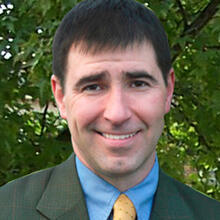As Benedict XVI’s pontificate comes to an end, we should pause to reflect on what this punctuation means for the Church. What era are we living in? Our answer to this question is important because it frames our approach to the opportunities, challenges and indeed crises we face as a Church. Can we still describe ours as the Post-Vatican II era 47 years since its close? 35 years, nearly three quarters of that time, the Church has been under the formative pontificates of John Paul II and Benedict XVI. Surely the state of the contemporary Church is as much a result of their vision, plans, and actions as the Council.
Benedict has resigned in the Year of Faith marking the 50th anniversary of the opening of the Second Vatican Council. Indeed his final address to the Clergy of Rome consisted of his personal remembrance of the Council and his views on how its misinterpretation by the secular media led it astray.
The Council was formative for the young theologian Ratzinger, as it was for all of his generation. He was equally influenced by the crises that coincided with its implementation. The student activism of 1968 was formative in his previous shocking resignation of one of the most important theological positions in Europe: the Chair of Dogmatic Theology at the University of Tübingen.
As Prefect of the CDF and John Paul II’s most trusted theological advisor, Cardinal Ratzinger played a key role in enacting that pope’s program of reform. They were very different men, but they agreed that much had gone wrong following the Council. There were crises indeed. Some were brought on by the unavoidably messy process of implementing so profound a Council. Others were perhaps coincidental in time, but nonetheless part of the new world the Council had committed the Church to addressing. It should be said that even these were not new problems. As important as 1968 was, the modern world had been wresting with a crisis of belief for centuries. These problems are older than the boomers and those adults who were dismayed at their youthful excesses. They have continued to develop in generations with no memories of those fateful years.
In American Grace, Putnam and Campbell reflect on a similar span of history and its effects on belief. They argue that unbelief came in two waves. The first followed the upheavals of the long sixties. The current wave of increasing secular sentiment in which we currently live arises from a different cause. It is not the further unfolding of 1968, but is rather a backlash against the conservative reaction that set in against it in the late 1970’s. Unbelief today, the rise of the so-called “nones” finds it origins in the era of John Paul and Benedict. That is not to say they caused it, but it does suggest that they have not found the answer either.
At the end of Benedict’s Pontificate, we must, as a Church, reflect on the demands of the moment.
Benedict gave us a pointed clue in his declaration of resignation. He is a scholar who thinks in paragraphs, so the wording of his statement deserves attention. The sentence in which he declared that his strength has deteriorated to the point where he is incapable of fulfilling his ministry, begins with a description of the challenges facing the Church “subject to so many rapid changes and shaken by questions of deep relevance for the life of faith.” Facing diminishing strength, Benedict chose – not to finish his encyclical on faith as an anchor of papal teaching for the Church’s evangelization in the coming decades – but to declare that these problems were not within his strength to solve.
As the Church begins its transition to a new pontificate, we should pause to reflect on these problems none of us have yet solved. Benedict’s words of resignation can perhaps inspire in us all the humility to ask God how we can live the Gospel in a manner that speaks to a world, that as much as it needs the Gospel of Christ, does not have to listen to us.







